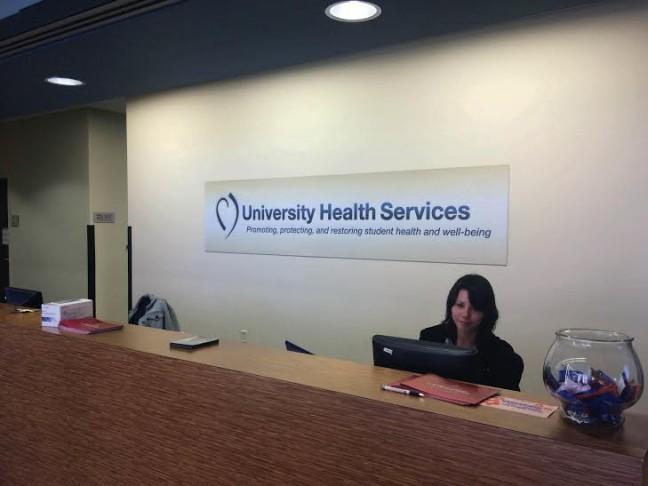Trojan recently released the 2015 Sexual Health Report Card, which ranks college campuses across their country based on accessibility to health resources.
In 2014, University of Wisconsin ranked No. 9. This year, that number dropped to 23.
Trojan based their research on 11 categories of what each campus provides to students, such as free condoms, testing for sexually transmitted infections and peer programs providing sexual health education
A debated ranking
Rachel McDonald, a program facilitator for Sex Out Loud, said she was surprised to hear UW’s ranking fell so much.
University Health Services executive director Sarah Van Orman said despite Trojan’s findings, the group does not clearly explain how it researched the 11 categories that determine each school’s ranking, so people should not judge UW’s sexual health services off of Trojan’s study alone.
McDonald said one of the reasons Wisconsin’s rankings may have fallen is because some students say they do not use condoms as often if they use other forms of birth control.
She said recently, more monogamous couples use other forms of birth control.
“If anything, I would find it disappointing that people aren’t choosing to use condoms specifically since they pay a dollar to get so many from us,” McDonald. “Maybe they’re not aware that this is a place that they can come and do that, but I would find it surprising that we would have gone down so much [in Trojan’s ranking].”
A national trend
In their latest report on sexually transmitted diseases, the U.S. Center for Disease Control found a general rise in STDs, some at an alarming rate.
The report said chlamydia, gonorrhea and syphallis have increased for the first time since 2006.
CDC’s findings are representative of STI trends at UW, McDonald said, because chlamydia became the most common STI on campus this year. In the past, she said, human papilloma virus was the most common STI.
McDonald emphasized the importance of testing for STIs such as chlamydia.
“If chlamydia goes untreated, it’s the leading cause of infertility in women, but that would occur a decade later. If we never found out we had it, a decade later, it could affect us,” McDonald explained. “That’s one of the reasons why it’s so important that people do get tested.”
Raising awareness
McDonald said HPV is now the third most popular STI on campus.
Van Orman said UHS directly helped with the drop in HPV rates because when students came to UHS to get their flu shots last year, the facility encouraged students to get their HPV vaccines.
Because of those efforts, she said, the number of students receiving HPV vaccines increased by 40 percent.
But Van Orman said HPV vaccines are one of the main things UHS is trying to increase on campus. She also said because chlamydia is now the most common STI on campus, UHS is trying to increase awareness of the free testing they provide and their recommendation that students, especially women, get tested annually.
“I think we still have a lot of work to do and would be interested in partnering with students, too,” Van Orman said.
Overall, Van Orman said UW is a sexually healthy campus, especially compared to other UW System schools.
According to the National College Health Assessment, a survey sent to students via email, recent results show 64 percent of UW students received HPV vaccines compared to 53 percent in the overall UW System.
Van Orman said she thinks UW thrives in its availability of reproductive and STI testing services for no cost, where at most campuses, students have to pay.
“One of our goals is to say, ‘let’s reduce the barriers for students coming in and getting those services done,'” Van Orman said. “We think it’s a really important part of what we do so that students don’t really have to think about where [they] get [those services] done.”

















